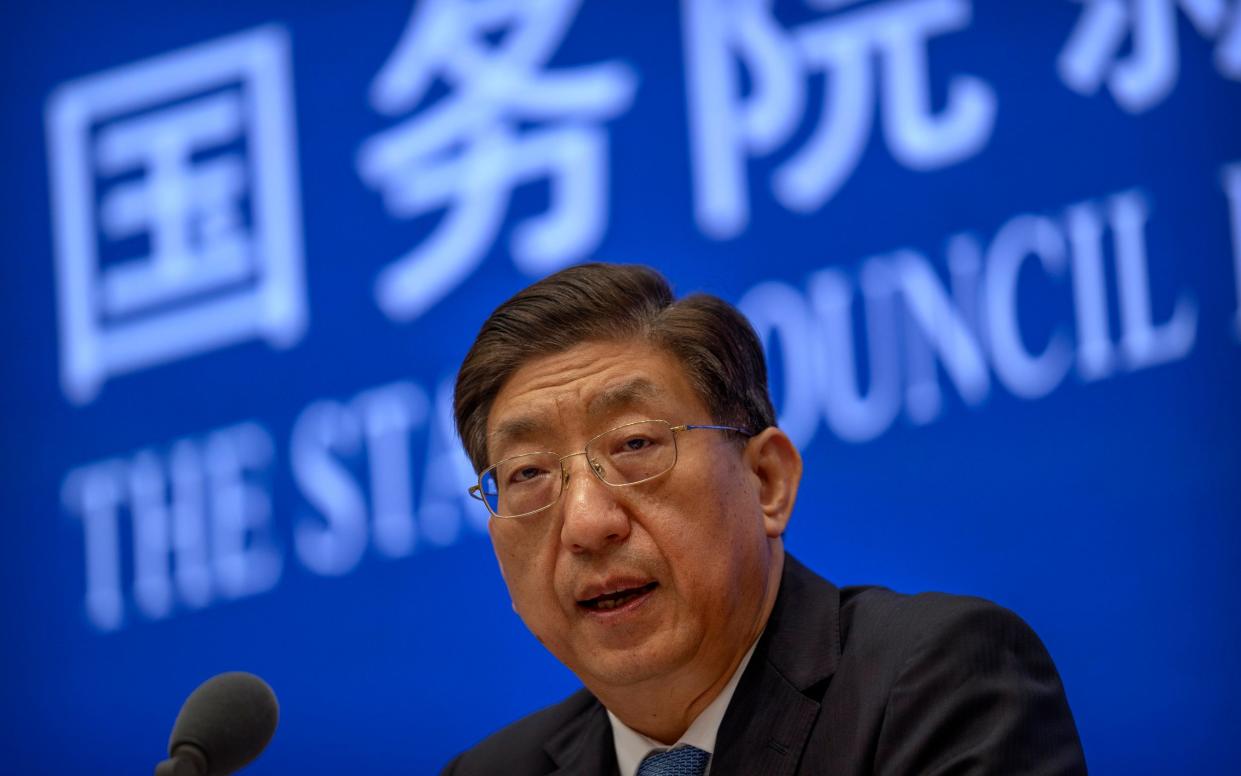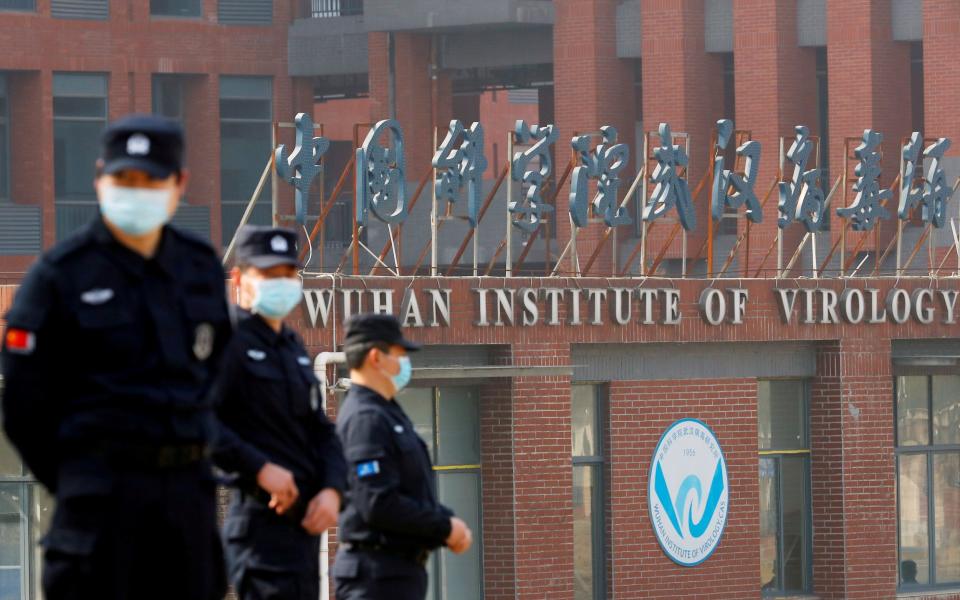China rejects second phase of WHO Covid origins inquiry amid escalating tensions

The World Health Organization’s plan for second phase studies into the origins of the coronavirus “disregards common sense and defies science”, a top Chinese health official has claimed.
In a series of withering comments, Zeng Yixin, vice minister of the National Health Commission (NHC), told reporters that China would “not accept” a strategy outlined last week by the WHO to further explore how the pandemic began.
Central to the WHO’s proposals are further audits of laboratories and markets in Wuhan, plus plans for member states to renominate a new team of scientists to investigate how Sars-Cov-2 jumped from animals to humans.
Dr Tedros Adhanom Ghebreyesus, director general of the WHO, has also struck an increasingly tough line on China, urging authorities to be fully transparent and share raw data from the early days of the initial outbreak, which has previously been withheld.
But Mr Zeng said the latest proposals have been politicised and that it would be “impossible” for China to accept them. He added that he was taken aback when he first read the WHO plan, as it includes further investigation of the hypothesis that the virus might have leaked from a Chinese lab.

“We hope the WHO would seriously review the considerations and suggestions made by Chinese experts and truly treat the origin tracing of the Covid-19 virus as a scientific matter, and get rid of political interference,” he said.
The spat comes amid heightened geopolitical tensions around the origins of the pandemic, which have contributed to deteriorating relations between China and the West. The theory that the virus may have emerged from a lab, which has gathered momentum in recent months, is especially controversial.
Last week Dr Tedros conceded that there had been a “premature push” to discount the hypothesis in early stages of enquiries, though stressed evidence to date suggests the most likely scenario is that the virus jumped from bats to humans via an as-yet-unidentified animal.
But China has reacted with anger to all suggestions that the virus may have leaked from a lab in Wuhan, where the first known Covid-19 cases were detected, dismissing the hypothesis outright and claiming the world risks politicising investigations.
“We believe a lab leak is extremely unlikely and it is not necessary to invest more energy and efforts in this regard,” Liang Wannian, the Chinese team leader on the WHO joint expert team, told reporters. Instead the next stage should focus on animal-tracing, including studies in other countries with large bat populations, he said.
Yuan Zhiming, director of the National Biosafety Laboratory at the Wuhan Institute of Virology (WIV), also appeared at the press conference. He insisted Sars-Cov-2 has natural origins, and maintained that the facility had not seen any leaks or staff infections since it first opened in 2018.
But China has repeatedly attempted to deflect accusations that the pandemic originated inside its borders, and was then able to spread thanks to initial bureaucratic missteps.
More recently, authorities have pointed to labs in America – particularly Fort Detrick, a US Army biological research facility in Frederick, Maryland – asking what “secrets” the “suspicion-shrouded” facility may be hiding.
According to the Global Times – a state media outlet – four million Chinese have signed a petition calling on the WHO to investigate the facility.
Since Fort Detrick was first mentioned by a Chinese Foreign Ministry spokesperson in late May, data collected by the Alliance for Securing Democracy suggests that at least 35 Chinese officials and state media outlets have mentioned the lab in some 115 tweets and nine languages, in an attempt to cast suspicion on the facility.
But many international scientists are increasingly concerned that the mud-slinging may prevent genuine breakthroughs in efforts to establish how Sars-Cov-2 spilled over to humans, a finding which could help prevent any future pandemics.
While most believe the lab leak theory deserves further study, the bulk of evidence still points to the conclusions reached by the first stage of the WHO’s investigation into the origins of Covid-19: that the virus jumped from bats to humans via an as-yet-unidentified animal.
Responding to China's comments a spokesperson for the UK's Foreign, Commonwealth and Development Office said: An FCDO spokesperson said: “As we have set out before we support a transparent and independent analysis and evaluation, free from interference and undue influence, of the origins of the Covid-19 pandemic.
“We noted the findings and recommendations of phase one of WHO study and urge momentum for expert-driven phase two studies. It is vital that all countries, including China, cooperate fully with that process.”
Protect yourself and your family by learning more about Global Health Security


